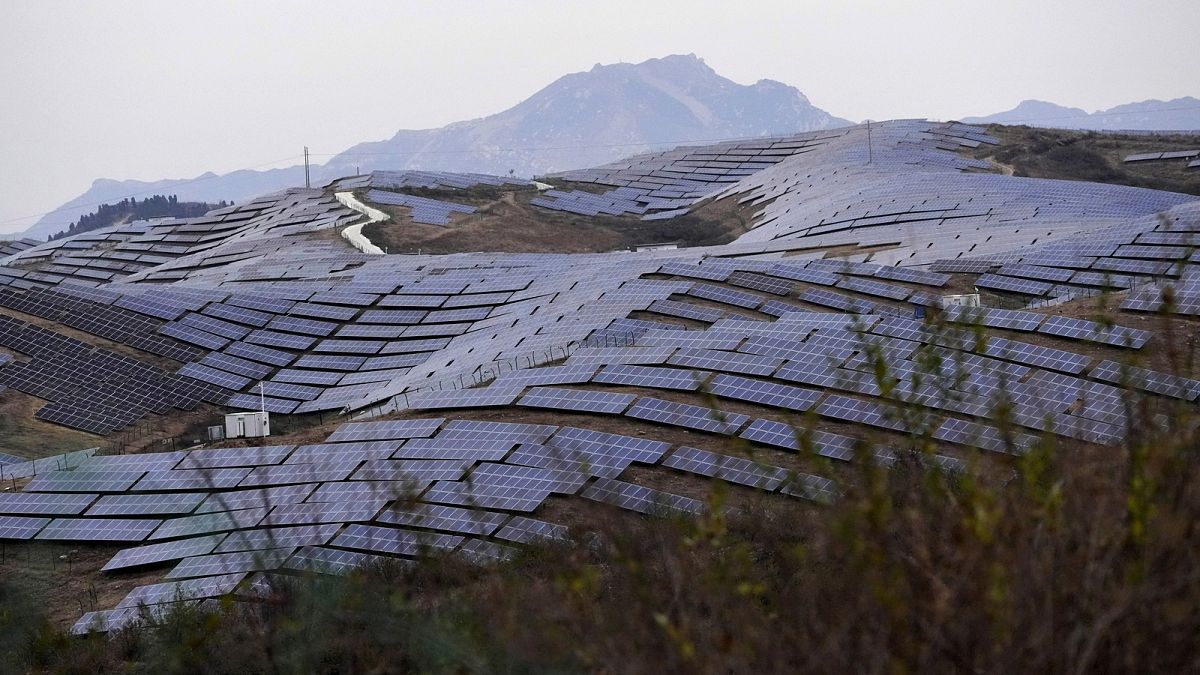EU launches probe into Chinese solar panels over potentially ‘distortive’ subsidies
The European Commission has launched two investigations into Chinese manufacturers of solar panels suspected of benefitting from “distortive” state subsidies and gaining an “unfair advantage.” The probe, announced on Wednesday, involves a project in Romania to design, build and operate a photovoltaic park of 110 megawatts (MW), partially financed by EU funds. The Commission worries […]


The European Commission has launched two investigations into Chinese manufacturers of solar panels suspected of benefitting from “distortive” state subsidies and gaining an “unfair advantage.”
The probe, announced on Wednesday, involves a project in Romania to design, build and operate a photovoltaic park of 110 megawatts (MW), partially financed by EU funds.
The Commission worries that two Chinese companies that submitted bids to take part in the construction are backed by excessive subsidies to help them defeat competitors and snatch the multi-million public contracts.
The first firm is LONGi Solar Technologie GmbH, a newly established subsidiary of LONGi Green Energy Technology, a major supplier of solar modules based in Xi’an, and the second is a consortium controlled by Shanghai Electric Group, a state-owned enterprise that provides services on wind, solar and hydrogen.
The Commission describes Shanghai Electric Group as being ultimately “subordinate to the China Central People’s Government,” the county’s chief administrative authority.
The amount of subsidies under investigation was not revealed. The executive has 110 working days to make a final decision, which can prohibit the award of the contract.
The law that enables Brussels to act, the Foreign Subsidies Regulation, applies to companies that are granted at least €4 million in subsidies from a non-EU government and participate in public tenders that exceed €250 million in value.
First presented in May 2021, the regulation seeks to increase scrutiny over foreign subsidies, which had until then been exempted from the Commission’s watchful eye, as opposed to the state aid injected by member states, which requires approval.
The bill is meant to guarantee fair competition in the 27-country borderless bloc, crack down on market distortions and prevent foreign governments from swooping up European brands. Last month, CRRC Qingdao Sifang Locomotive, a Chinese state-owned company, withdrew from a tender to purchase 20 electric “push-pull” trains in Bulgaria after being subject to an investigation under the regulation.
Wednesday’s move is the latest episode in a wider rethink of how the West consumes Chinese goods. Brussels and Washington are sounding the alarm about Beijing’s generous scheme of state subsidies, which allows its firms to churn out sought-after products for the green transition, such as electric vehicles, batteries, solar panels and wind turbines, at a very low cost and a very large scale.
“Solar panels have become strategically important for Europe: for our clean energy production, jobs in Europe, and security of supply,” said Thierry Breton, the European Commissioner for internal market.
“The two new in-depth investigations on foreign subsidies in the solar panel sector aim to preserve Europe’s economic security and competitiveness by ensuring that companies in our single market are truly competitive and play fair.”
Western allies fear that, as demand for carbon-neutral technology continues to soar, China will conquer the entire market and obliterate all remaining competition. Europe’s solar industry has warned it faces an “existential threat” and that, unless action is taken soon, it could collapse in a matter of months.














